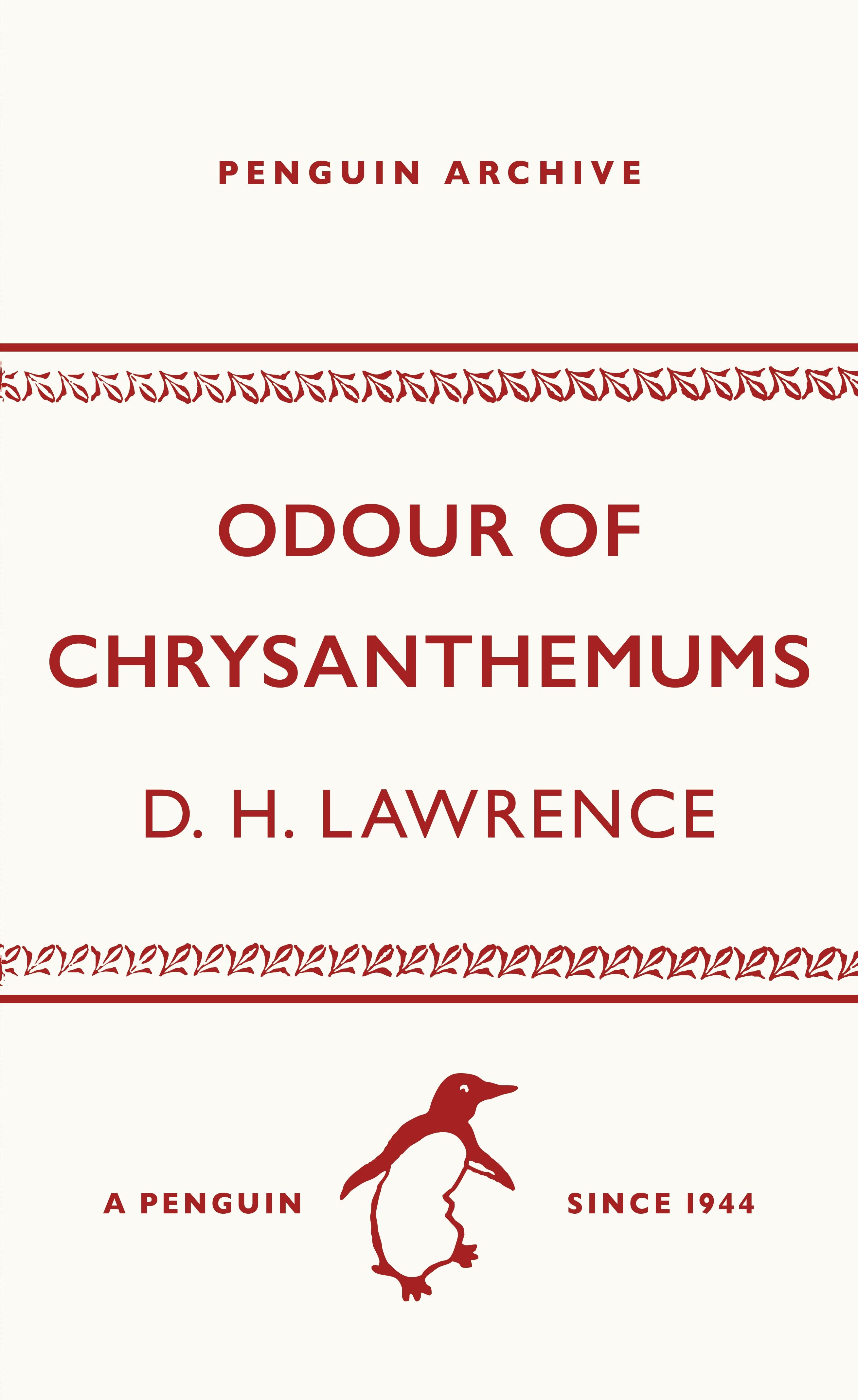

Odour of Chrysanthemums
D. H. Lawrence
1885–1930
a p enguin since 1944
D. H. Lawrence
Odour of Chrysanthemums
PENGUIN BOOKS
UK | USA | Canada | Ireland | Australia
India | New Zealand | South Africa
Penguin Books is part of the Penguin Random House group of companies whose addresses can be found at global.penguinrandomhouse.com.
Penguin Random House UK , One Embassy Gardens, 8 Viaduct Gardens, London SW 11 7BW
penguin.co.uk
First published 1911–1928
Chosen from Selected Stories, Penguin Classics 2007
This selection published in Penguin Classics 2025 001
No part of this book may be used or reproduced in any manner for the purpose of training artificial intelligence technologies or systems. In accordance with Article 4(3) of the DSM Directive 2019/790, Penguin Random House expressly reserves this work from the text and data mining exception.
Set in 11.2/13.75pt Dante MT Std
Typeset by Jouve (UK ), Milton Keynes
Printed and bound in Great Britain by Clays Ltd, Elcograf S.p.A.
The authorized representative in the EEA is Penguin Random House Ireland, Morrison Chambers, 32 Nassau Street, Dublin D 02 YH 68
A CIP catalogue record for this book is available from the British Library
ISBN : 978–0–241–74697–4
Penguin Random House is committed to a sustainable future for our business, our readers and our planet. This book is made from Forest Stewardship Council® certified paper.
Odour of Chrysanthemums
The small locomotive engine, Number 4, came clanking, stumbling down from Selston with seven full waggons. It appeared round the corner with loud threats of speed, but the colt that it startled from among the gorse, which still flickered indistinctly in the raw afternoon, outdistanced it at a canter. A woman, walking up the railway-line to Underwood, drew back into the hedge, held her basket aside, and watched the footplate of the engine advancing. The trucks thumped heavily past, one by one, with slow inevitable movement, as she stood insignificantly trapped between the jolting black waggons and the hedge; then they curved away towards the coppice where the withered oak-leaves dropped noiselessly, while the birds, pulling at the scarlet hips beside the track, made off into the dusk that had already crept into the spinney. In the open, the smoke from the engine sank and cleaved to the rough grass. The fields were dreary and forsaken, and in the marshy strip that led to the whimsey, a reedy pit-pond, the fowls had already abandoned their run among the alders, to roost in the tarred fowl-house. The pit-bank loomed up beyond the pond, flames like red sores licking its ashy sides, in the
afternoon’s stagnant light. Just beyond rose the tapering chimneys and the clumsy black headstocks of Brinsley Colliery. The two wheels were spinning fast up against the sky, and the winding-engine rapped out its little spasms. The miners were being turned up.
The engine whistled as it came into the wide bay of railway-lines beside the colliery, where rows of trucks stood in harbour. Miners, single, trailing, and in groups, passed like shadows diverging home. At the edge of the ribbed level of sidings squat a low cottage, three steps down from the cinder track. A large, bony vine clutched at the house, as if to claw down the tiled roof. Round the bricked yard grew a few wintry primroses. Beyond, the long garden sloped down to a bush-covered brook-course. There were some twiggy apple trees, winter-crack trees, and ragged cabbages. Beside the path hung dishevelled pink chrysanthemums, like cloths hung on bushes. A woman came stooping out of the felt-covered fowl-house half-way down the garden. She closed and padlocked the door, then drew herself erect, having brushed some bits from her white apron.
She was a tall woman of imperious mien, handsome, with definite black eyebrows. Her smooth black hair was parted exactly. For a few moments she stood steadily watching the miners as they passed along the railway: then she turned towards the brook- course. Her face was calm and set, her mouth was closed with disillusionment. After a moment she called:
‘John!’ There was no answer. She waited, and then said distinctly:
